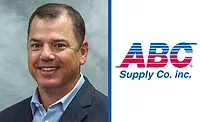COVID-19 Q&A with Roofing Industry Leaders
Highlights From RC’s Continuing Coverage of COVID-19’s Impact on Roofing Contractors and the Companies They Partner With

Just when policies and recommendations on health and safety or best business practices were introduced, they seemed susceptible to rapid changes before they could even take hold.
The speed with which events surrounding the COVID-19 pandemic changed the lives and livelihoods of many Americans was mind-numbing at times. Just when policies and recommendations on health and safety or best business practices were introduced, they seemed susceptible to rapid changes before they could even take hold.
The situation and mounting uncertainty created a lot of questions that leaders across the roofing industry tried to answer. The following is a collection of some of the more pertinent ones RC asked as the crisis unfolded in different markets across the country.
RC: What are you proudest of about your organization going through this?
John DeRosa: I honestly love the way our team and the industry as a whole has pulled together. We pride ourselves on having the best team in the industry and I really appreciate the way everyone in our organization has stepped up to protect everyone’s safety and give our customers the support they require, too.
Tom Saeli: We’ve got some really unbelievable people in this organization that came up with the idea (to make medical equipment), worked over the weekend and made everything happen. I give them all the credit. We’re all in this together, there’s a big need, and we’re just filling a very small part of it.
Jim Schnepper: I couldn’t be more proud to be in a business like this, one that has a purpose and is driven to a purpose. We think about that a lot, but especially in times of crisis. Watching how this was beginning to evolve, this is a page out of a playbook I don’t own, and not a lot of people have lived through something like this on this scale we’re at right now.
Jon Gardner: Our area sales managers, without skipping a beat, were able to pivot and continue to have conversations and help contractors in their local markets in ways they were doing before, it was just virtually. We already had the tools in place with Owens Corning University.
RC: There’s widespread debate about this around the country, but why is roofing essential?
JS: We are rightly viewed as essential to the economy and when you think about all the people working now in their homes, how many hospitals need to operate, and temporary hospitals will be needed. All of these have roofs over them. The critical nature of what we do, and the times we’re in, kind of align.
Reid Ribble: We believe that roofing, due to its unique nature as the first line of defense for every single American from the elements, is absolutely essential. Virtually every American has a roof — we’re telling every American to shelter in place, but what about those thousands of families in central Tennessee that lost their homes or had severe damage due to the tornadoes…the fact of the matter is that there are certain circumstances that go beyond the need to shelter in place and provide service on a go-forward basis.
RC: How was your company prepared for this challenge and ready to help contractors?
JD: SRS introduced Roof Hub more than a year and a half ago. We’ve actually moved to our next generation desktop version that puts our customers in the best position to manage all of the SRS business. Our desktop version, RoofHub.Pro, gives customers the ability to place orders online and the process couldn’t be easier. We know our customers are extremely busy so we equipped Roof Hub with Smart Template Technology that looks at the customer’s SRS order history and literally builds their order templates based on the items they order most. It’s really pretty amazing.
JS: At the time, I didn’t feel like we were ahead of the curve of anything, but we asked what happens if they actually stop people from coming in? Or what if we have to close the offices, how can we continue to operate? So we did a test work-at-home day. And it worked marvelously well.
JG: Prior to COVID, Owens Corning was going around the country with 12-15 of our business service partners and allowing contractors to learn in the classroom setting and an expo setting to have a one-on-one experience. We’ve extended our Business Building Days virtually with our contractors so that hopefully we can continue to teach our contractors about ways in which they can continue to invest in their business, take their business to the next level, and in light of what is going on today, pick the most pertinent services that make the best sense for them.
RC: How has or will this crisis change current products or service offerings?
JS: We were just getting ready to launch our in-home selling app, and pivoted that to an online version. It’s in pilot now with 300 contractors and we plan to scale up by adding 1,000 contractors a month. It gives the contractor the means with which they’re able to continue to work. They can make sure that when a home is leaking or needs a new roof … they can get in there quickly and sell to homeowners in a safe way.
JG: The feedback that we’re getting from contractors is homeowners are okay with (virtual sales) because the technology that is available with drones, the technology that is available with financing solutions, the technology that Owens Corning invested in with Build Your Roof…in a way, this whole virtual process has enabled some contractors to beef up their own sales presentations and beef up the ways in which they’re presenting, from soup to nuts, what they’ll be doing for a homeowner, so I see this staying.
RC: What concerns you most about the reaction to this crisis as it unfolded?
JD: Our first concern is for the safety of our employees, our customers, and everyone’s family. Beyond that, we don’t dwell too much on the disruption because there’s really not much any of us can do about it. We instead try to use the downtime as an opportunity to help our customers be better prepared for the business when it comes back. We’ve tried really hard to be a positive voice in this environment — giving our customers and our people the ability to think about and take action on what we want and need to do to add value.
JS: The people, right now especially. Now it’s more important because if we do this wrong, there are real health issues involved, so that takes this to another level. It’s not just people’s livelihoods, it’s their lives.
RC: What’s been an invaluable tool and what’s the key benefit?
JS: We migrated to Google Suite (G Suite) two years ago, and working on this platform is ideal for this. We have video conferences, live meetups, even social hours. The most important part is communication, communication, communication. If you talked to someone once a day, you’re probably talking to them three times a day now under this format. People need to feel connected, part of the team still. It’s hard for some personalities to not be around their coworkers and they feel isolated, so Google is a great proxy for us.
RC: What financial concerns did retooling to make medical gear generate?
TS: The financial analysis on this doesn’t make sense, but in a time of need, we said, ‘We’ve got to do what we’ve got to do to help.’ We’re not doing this to make a profit. We’re doing this because it’s the right thing to do. Employ some of our people instead of lowering business conditions and face unemployment.
RC: How did that impact company morale?
TS: It’s energizing. At a time when you’re looking for some good news, this is a good story. We feel proud of what we’re doing and it does help our people. It’s small, what we’re doing, but it’s getting everyone energized.
Looking for a reprint of this article?
From high-res PDFs to custom plaques, order your copy today!





